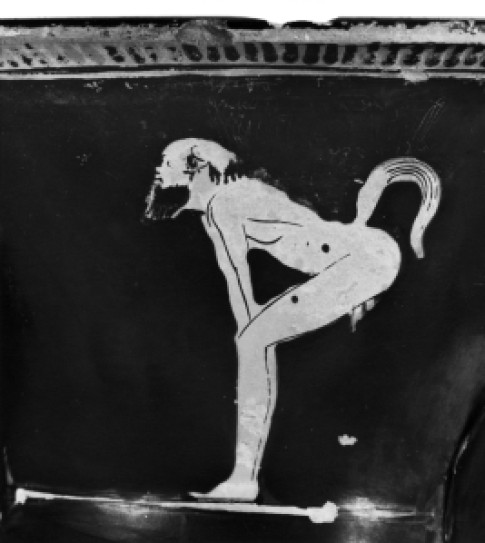Homer, Il. 9.206–217
“He put a large meat block on a burning fire
And placed on top of it the back of a sheep and a fat goat
And a slab of succulent hog, rich with fat.
As Automedon held them, Achilles cut.
Then he sliced them well into pieces and put them on spits
While the son of Menoitios, a godlike man, built up the fire.
But when the fire had burned up and the flame was receding,
He spread out the coal and stretched the spits over it.
Once he put the meat on the fire he seasoned it with holy salt.
When he cooked the meat and distributed it on platters,
Patroclus retrieved bread and placed it on a table
In beautiful baskets. Then Achilles gave out the meat.”
αὐτὰρ ὅ γε κρεῖον μέγα κάββαλεν ἐν πυρὸς αὐγῇ,
ἐν δ’ ἄρα νῶτον ἔθηκ’ ὄϊος καὶ πίονος αἰγός,
ἐν δὲ συὸς σιάλοιο ῥάχιν τεθαλυῖαν ἀλοιφῇ.
τῷ δ’ ἔχεν Αὐτομέδων, τάμνεν δ’ ἄρα δῖος ᾿Αχιλλεύς.
καὶ τὰ μὲν εὖ μίστυλλε καὶ ἀμφ’ ὀβελοῖσιν ἔπειρε,
πῦρ δὲ Μενοιτιάδης δαῖεν μέγα ἰσόθεος φώς.
αὐτὰρ ἐπεὶ κατὰ πῦρ ἐκάη καὶ φλὸξ ἐμαράνθη,
ἀνθρακιὴν στορέσας ὀβελοὺς ἐφύπερθε τάνυσσε,
πάσσε δ’ ἁλὸς θείοιο κρατευτάων ἐπαείρας.
αὐτὰρ ἐπεί ῥ’ ὤπτησε καὶ εἰν ἐλεοῖσιν ἔχευε,
Πάτροκλος μὲν σῖτον ἑλὼν ἐπένειμε τραπέζῃ
καλοῖς ἐν κανέοισιν, ἀτὰρ κρέα νεῖμεν ᾿Αχιλλεύς.










